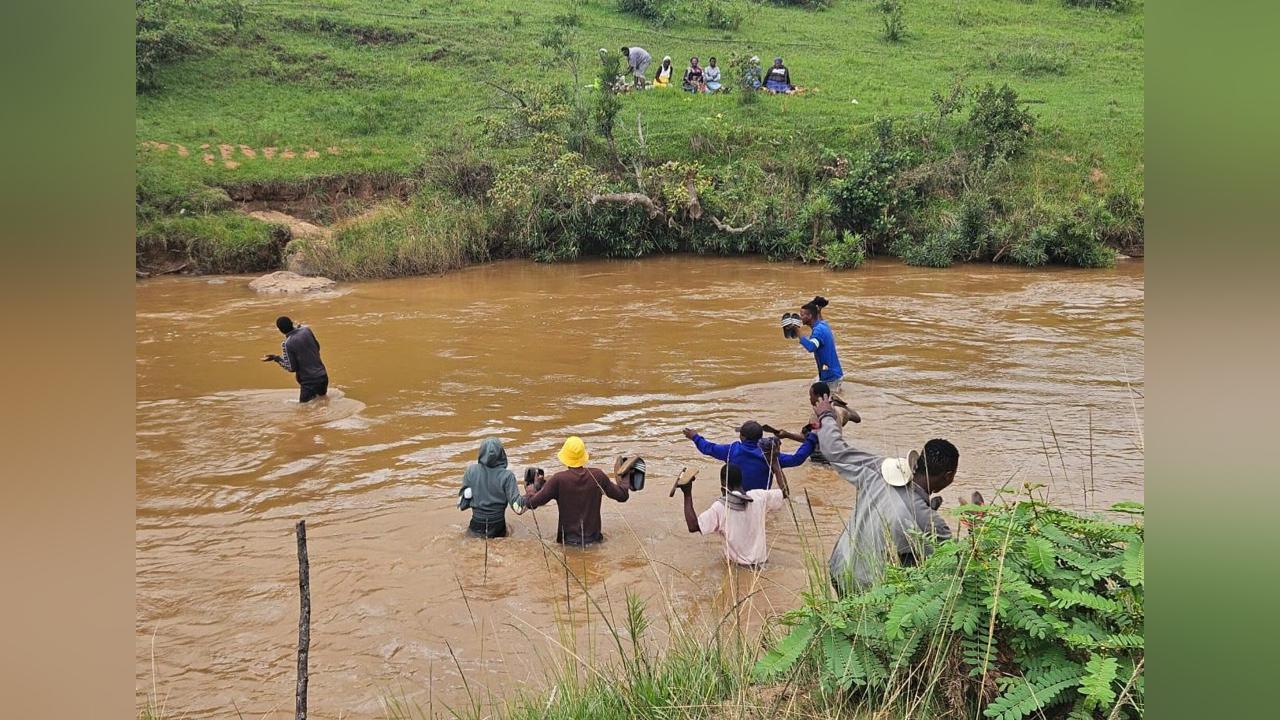Africa-Press – Eswatini. A brighter, safer future is on the horizon for the communities of Mbelebeleni, Nsuka, and Nkiliji, as the long-awaited Khelekhele suspended footbridge project officially takes off.
Set to benefit more than 3 360 residents—including 2 400 children—the bridge promises to end years of struggle crossing the Black Mbuluzi River, especially during the dangerous rainy season. This milestone marks the 31st footbridge built in Eswatini since 2017 under the fruitful partnership between Engineers in Action (EIA) and the Microprojects Programme (MPP), with completion expected by mid-July 2025.
EIA, a US-based nonprofit, works alongside Microprojects to deliver essential infrastructure such as clean water systems and pedestrian bridges to Eswatini’s most remote communities. These footbridges are more than concrete and cables—they are lifelines that connect people to schools, markets, clinics, and opportunities. Built with top-quality international materials, the bridges are designed to last up to 50 years, ensuring long-term safety and resilience against extreme weather.
EIA Program Manager Ana Jovanovic highlighted the spirit of global collaboration:
“This bridge will be built with the help of civil engineering students from CU Boulder, Penn State, and the University of Southern Indiana, supported by professional engineers and faculty mentors. We are grateful for the warm welcome from local residents, whose support is crucial. Today, even as we launch this project, high water levels are preventing many from participating—underscoring just how vital this bridge will be.”
The launch event drew enthusiastic praise from government leaders. Minister of Public Service, Hon. Mabulala Maseko, expressed heartfelt thanks:
“We are grateful to EIA and Microprojects for this critical project, which enhances safety and supports local economic growth. Community involvement is key—let’s all embrace this effort and take pride in our shared achievement.”
Minister of Housing and Urban Development, Hon. Apollo Maphalala, underscored the broader impact:
“This footbridge will unlock new trade and communication opportunities, easing daily life for everyone.”
Deputy Director of Microprojects, Ketitswe Simelane, offered an inspiring reminder:
“While we thank both the Eswatini and US governments, we must remember that development starts with us. This bridge shows what’s possible when communities unite—let’s take ownership and lead its success.”
Construction kicks off on May 5, with international volunteers joining local teams from May 19. Over the following eight weeks, they will work hand-in-hand to complete a project destined to transform lives for generations to come.
For More News And Analysis About Eswatini Follow Africa-Press







